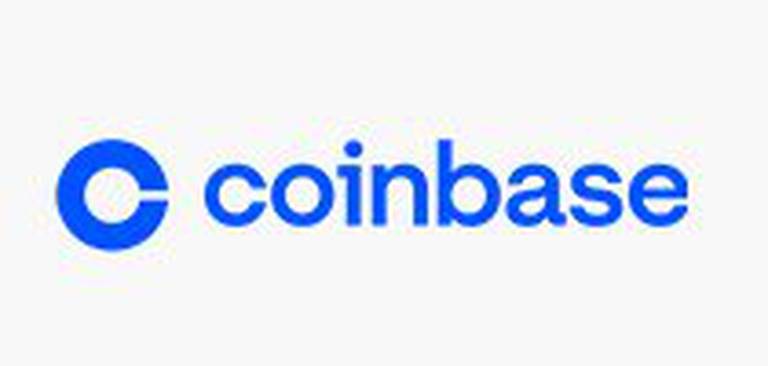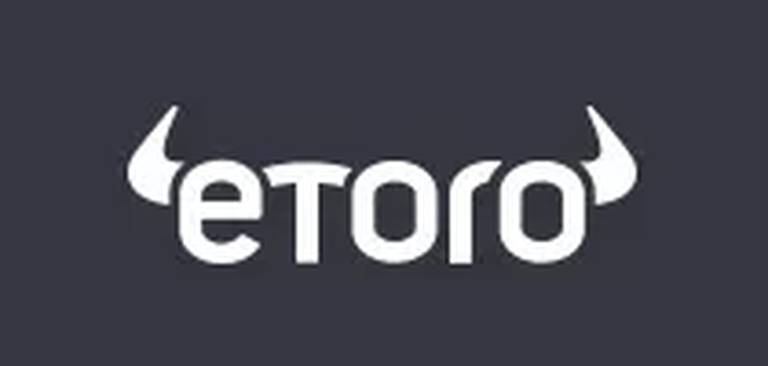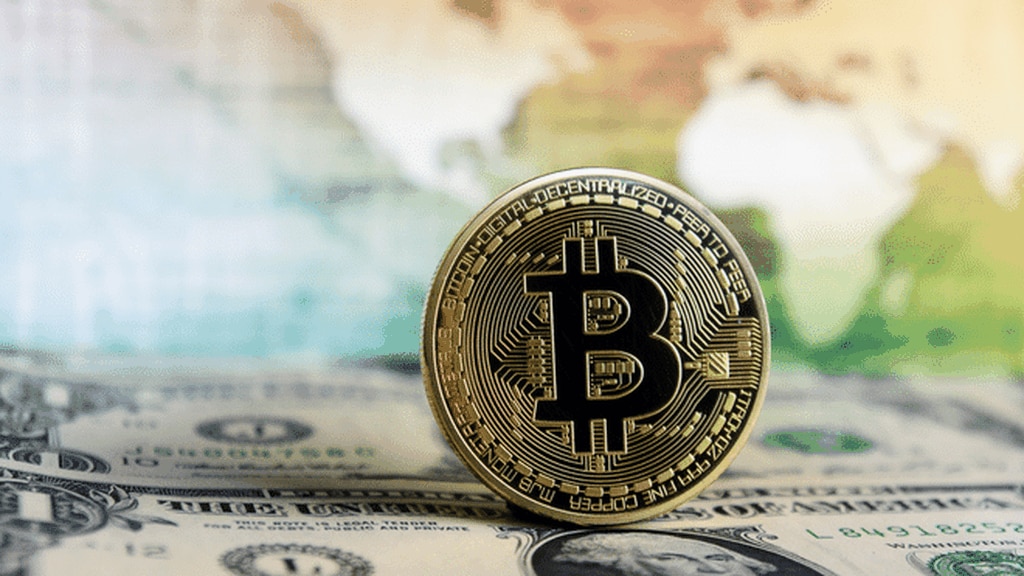Almost nine years ago, I wrote an article here asking whether or not Bitcoin was a scam. The cryptocurrency was practically brand new and, at the time, had a value of just $13 per coin. Being the genius I am, I purchased 100 coins over the course of six months using a variety of unreliable online platforms. My total investment at the time was roughly $1,500. If you can’t already tell from my investment in baseball cards, I am an outside-the-box kind of guy.
Related: Bitcoin Tax Guide 2022: Crypto Tax Rules
When I owned these Bitcoins, I was single, living alone, employed at a job I had just started with student debt up the wazoo. As life progressed, I got married, bought a house, had children, and paid a lot of my student debt down. When Bitcoin hit $300 some years ago, I cashed out. There was simply no way to pass up a 7,000% return. Today, however, those 100 coins are worth roughly $1.6 million.
Oh, how that pains me. Like I said - genius.
Getting to the point of my diatribe: When I purchased those coins in 2010, I did so at great risk. There were only a few start-up Bitcoin sellers. For $50 at a time, I was able to make deposits, buy BTC, and store them in an online wallet. Every single one of those start-ups is gone except for Coinbase, so naturally, we’ll start there.
Related: Best Bitcoin Debit Cards
Four Best Websites to Buy BTC, ETH, or LTC
I’ve used all four of these websites to buy and sell Bitcoin, and the transactions have been smooth and reliable every time. Each provides something a little different. So depending on your needs, you may find them more or less expensive.
Coinbase

The biggest and brightest merchant for bitcoin and other cryptocurrencies is easily Coinbase. With over 73 million members signed up, Coinbase is the most popular and most recognizable Bitcoin merchant on the web. And to be honest, they’re a little different than the markets you see below.
Coinbase lets you deposit money into your account via credit card or bank transfer with moderate. The fees are 3.99% when depositing via a credit card and 1.49% when done via bank transfer. In fact, the bank transfer cost is higher than any of the other merchants on our list. However, unlike other exchanges, Coinbase offers to buy and sell your cryptocurrency at a set price. When you enter the amount of Ethereum you want to buy or sell, Coinbase will tell you the fee and the cost. It will execute the transaction immediately if you have the funds available. No muss, no fuss.
While Coinbase is secure and uses two-factor authentication, they’ve had a bit of trouble on their platform. Twice in two weeks, Coinbase was forced to shut down for a few moments (an hour or so) to adjust its pricing structure. Their model made the price of Bitcoin soar (higher than other merchants had the value). Because of this, they were forced to freeze accounts and fix the issue. Coinbase does offer a secondary market for the purchase of all cryptocurrencies called GDAX, where fees are much lower. However, buying and selling here is a bit more complicated.
Coinbase is located on the west coast in San Francisco, CA. They were founded in 2011, and by October of 2012, they were fully operational.
Gemini

Gemini Exchange is relatively new to the space, having been launched in 2015 by the famed Winklevoss twins. It’s fully regulated and compliant in the state of New York (since 2016) and is the second-largest US-based exchange (behind Coinbase). Bitcoin, Ethereum, and Litecoin are all available on the exchange. In the last few months, this is where I have done most of my cryptocurrency trading.
Fees for trading on the Gemini Exchange are moderate. When trading less than $1,000 in value, the fee is 0.25%. That fee quickly creeps lower as you trade more. The fee Gemini charges are determined by the amount you trade over a 30-day calendar window. When you sell more than $1,000, the fee drops to 0.23%. When you sell more than $2,000, the fee goes to 0.20%, and so on. At just $5,000, the fee drops to 0.10%. When you buy, the fees are even better, as putting an order in for greater than $5,000 will allow you to trade fee-free. You can find the full schedule of fees from Gemini trading here.
I use Gemini more than other exchanges because of how easily money can come in and out of the exchange. Initially, when setting up my account, they attempted to verify my bank account automatically (but could not do so). After I submitted a single bank wire, my account was confirmed. Then I was able to deposit and withdraw money in and out of the exchange fee-free. Deposits do take some time, up to five business days, before being able to be traded. But withdrawals only take one to two business days. Three times in the last few months, I’ve requested withdrawals before noon ET, and the very next day, they arrived.
Gemini also uses two-factor authentication but currently does not use Google Authentication to log in. They send you a text to confirm your identity. Once you enter that online, you can stay logged in for 24-hours.
Bitstamp

While the first two on our list are US companies, Bitstamp is not. They’re located in Luxembourg. And if you ever decide to do a wire transfer in or out of the exchange, you’re likely to see the money come and go from Slovenia. While that may give you some pause, Bitstamp has been around since 2011 and currently has over 1 million users. I’ve personally made many transfers to and from this exchange. And I’ve always received my money in a timely fashion.
The fee schedule for Bitstamp is on the higher side. When trading, you'll start at a 0.25% fee for each trade. Depending on your daily trade volume, they lower that amount all the way down to 0.10%. For example, if you make a deposit into the exchange and wish to purchase $5,000 in BTC, ETH, or LTC, Bitstamp will charge a 0.25% fee to do so ($12.50). To transfer your cryptocurrency back to cash, the same fee applies.
When depositing money as a US citizen, you have two main options. You can deposit via credit card, which costs a 5% fee. Or you can deposit by bank wire, where a .05% fee applies, with a minimum fee of $7.50. To withdraw via bank wire, the fee is 0.09% (minimum fee of $15). If you’re planning to trade tens of thousands, these fees are of little consequence. If you’re a casual trader looking to buy $50 here and $50 there, this is not the exchange for you. Perhaps most importantly, there is no fee for depositing and withdrawing Bitcoin, Litecoin, or Ethereum.
Bitstamp uses two-factor authentication for logging in and making transfers to and from, along with email confirmation. Google Authentication is required (which means downloading an app). So if you use Bitstamp for your cryptocurrency purchases, make sure to print your validation mark (should you ever lose your phone).
CEX.io

Before Gemini came along and before I was able to consistently deposit into Bitstamp (as a US customer), I used CEX.io for my purchases and transfers. Launched in 2014 and located in the UK, CEX.io may have the best trading tools and platform. The trouble I ran into as a casual trader is that they requested a lot of compliance documents for buying and selling four-figure BTC amounts. Over time, I grew tired of having to provide validation documents.
In addition to the regulations, the fee structure on this exchange is on the high side for getting money in and out of the exchange. When trading on the exchange, the fees are right in line with just about everyone else. Depending on the amount you’re trading inside a 30-day window, the fee can be as high as 0.25% and as low as 0.10% (for sellers). For buyers, the fee is as high as 0.16% and as low as nothing. To qualify for the fee-free buying structure, you’d have to trade more than 6,000 coins in a month. At today’s value, good luck!
The trouble becomes getting money into the exchange as a US resident. Using Visa or MasterCard, the fee is 3.5% per transaction. There is no fee for a bank transfer. But as a US resident, those can only come from bank wires (for which your bank will surely charge a fee). Withdrawals occur via the form of bank transfers. And no matter the amount you request, the fee is $50.00. If you’re feeling crazy, CEX.io also offers margin trading. Here’s a full list of the structure of margin fees. Be CAREFUL.
CEX.io has an API you can take advantage of, multiple calculators, a mobile app, and a price widget to help you predict the future. All in all, if you don’t mind paying just a little bit extra to get your money into the exchange, it’s a winner. Depositing cryptocurrency is FREE, so your best bet is to deposit your fiat currency somewhere else and transfer your coins here.

eToro
is based out of Tel Aviv and was formed back in 2007. They’ve been offering access to cryptocurrency assets since 2012. It’s a pioneer when it comes to mixing social media with finance. This social trading platform allows you to copy the trades of successful cryptocurrency investors with a proven track record because they encourage users to share and connect with each other to learn together.
The account minimum to get started with eToro is $10, so you can start investing in cryptocurrency even if you’re not in the financial position to take on a bigger risk. They support the trading of 27 different types of coins, so you have access to various forms of cryptocurrency instead of just Bitcoin and Ethereum.
eToro prides itself on making the cryptocurrency investing experience as smooth as possible for users. It wants to open global markets so that everyone can invest transparently. The company even rewards you if others begin to mimic your trades down the line.
You can open a free account with no management fees that gives you access to professional tools and the wisdom of other investors. This means that you can copy the trades of successful cryptocurrency investors without being charged for the information.
When it comes to trading costs, eToro charges a 1% fee for all cryptocurrency transactions (buying and selling). This simple fee structure provides full transparency, so you know what to expect. eToro also allows you to trade cryptocurrency off its platform (which isn’t available on all cryptocurrency exchanges), and the mobile app is easy to use.
The downside to eToro is that it’s not available in all states yet, so you may be unable to sign up depending on where you live.
After reading through many reviews, it’s clear to me that users choose for its social copy trading capabilities since this is a rare feature. As a rookie to cryptocurrency - or even an experienced investor - you can benefit from the power of community and shared knowledge since this cryptocurrency space can be highly volatile.
Where to Avoid Buying Bitcoin
LocalBitcoins

LocalBitcoins is the Craigslist of the cryptocurrency world. If you’re looking to buy something like Litecoin, you can post a want-ad. If you have Litecoin to sell, you can also post that up. This website brings buyers and sellers together. On the surface, it seems like a great idea to be able to transfer coins with a simple “for sale” advertisement.
But the problem I’ve always had with this website is that the costs to the buyer are unreasonable. Oftentimes, buyers are asked to send money via wire transfer. Other times, the fee for buying a single coin can be as high as 85%. It was very rare to complete a transaction at a reasonable price on the site, so I would urge you to proceed with caution. The transactions are not as secure as they are elsewhere, and the fees can be outrageous.








